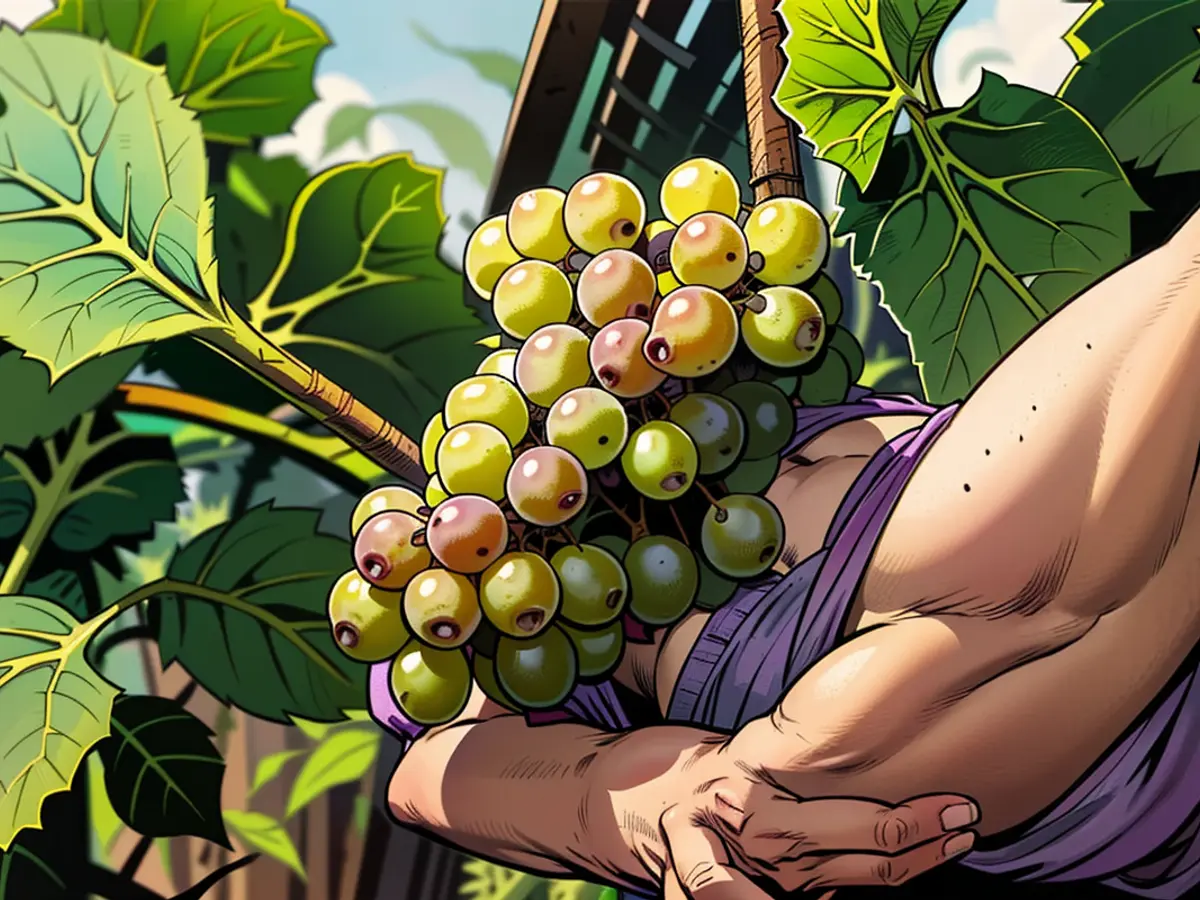- Winegrowers expect low yield - top wines possible
Despite all efforts following the hours-long night frost in April, 2024 is not shaping up to be a good year for Saxon viticulture. "But everyone will be able to harvest something, albeit small," says Felix Hößelbarth, chairman of the Saxon Winegrowers' Association. The "green canopy" of the vineyards in the Elbe Valley belies the fact that "there are clearly fewer grapes hanging than in normal years." This applies even to areas that were not reached by the frost or were protected by fire. "In the end, we are expecting a very, very small harvest."
The association head estimates that only 20 to 30 percent of a normal harvest will make it into the cellars. And besides investments in maintaining and caring for the facilities for the next season, the harvest also means additional effort. "There are years when everything comes together: late frosts, then too cold and wet weather during bloom, which was very unfavorable for the grapes that were just breaking through," reports Hößelbarth. As a result, only a small portion of the blossoms turned into berries.
Aid for Saxon winemakers from the state and federal governments
At the end of May, the winegrowers' association put the loss of yield in the Elbe Valley at around 34 million euros, a loss of 83 percent. The Saxon cabinet has released up to 22 million euros in funding for the severe damage in fruit and wine production, and the federal government has applied for financial emergency aid for the affected federal states from the EU Commission's agricultural reserve. The process is still ongoing.
Now everyone is hoping for a golden autumn. The grapes need stable high-pressure weather, not too hot but sunny, "and a nice rain in between," they say in unison. And the harvest with the earliest varieties could already begin in the last week of August, according to Hößelbarth - and at least in terms of quality, 2024 could become a good year.
Despite the Challenges in Saxon viticulture, the agriculture sector hasn't been left untouched. The government has acknowledged the significant losses in the Elbe Valley's fruit and wine production and has allocated up to 22 million euros in funding for the severe damage.
Additionally, the federal government has sought financial emergency aid from the EU Commission's agricultural reserve for the affected regions due to the 83% yield loss, estimated by the winegrowers' association.








